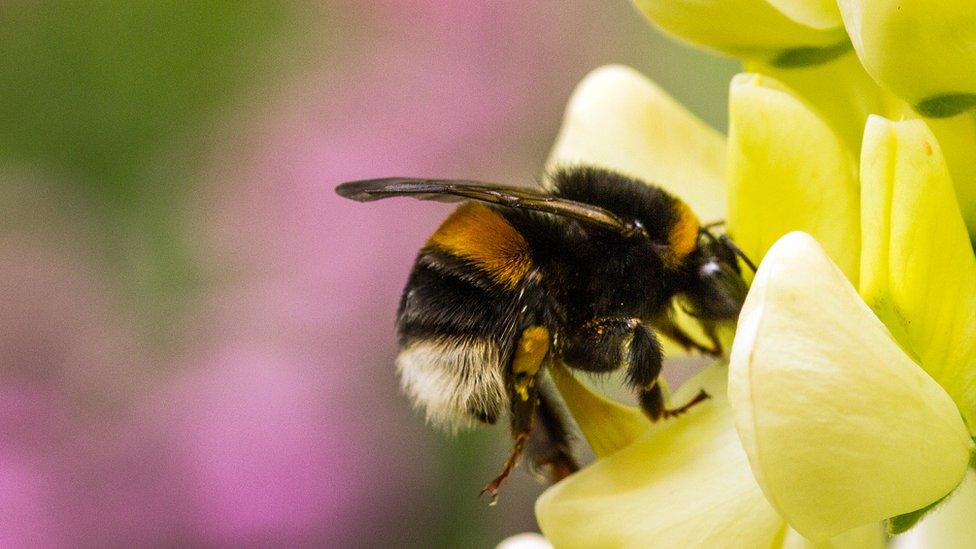Rare spider and bee species spotted in Rugby
- Published
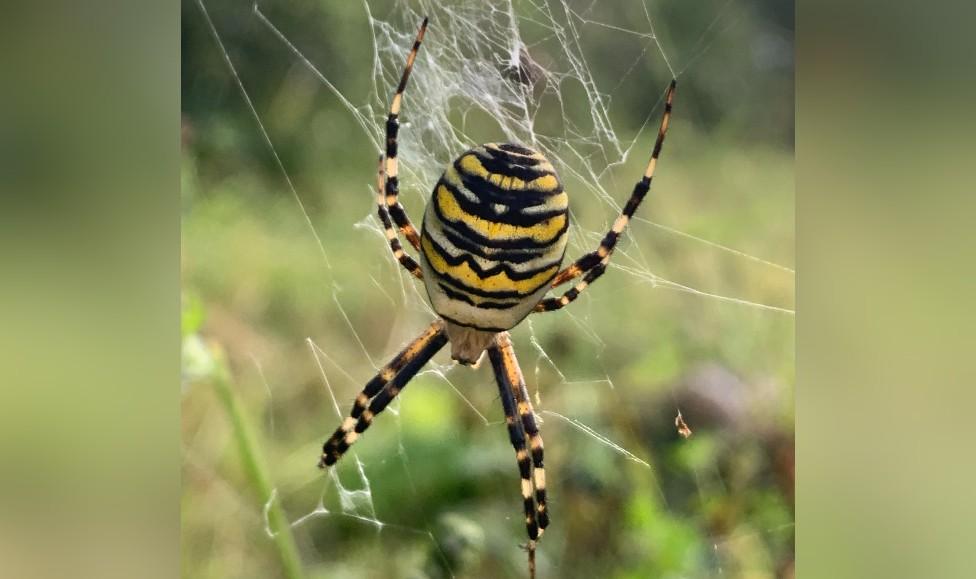
A wasp spider was discovered by Rugby Wildlife volunteers working at the Ashlawn Cutting Nature Reserve
Rare spider and bee species have been discovered in Rugby.
A wasp spider sporting striking yellow and black stripes was spotted by conservation volunteers at Ashlawn Cutting nature reserve last month.
The non-poisonous arachnid arrived in the UK from continental Europe, with the majority of sightings recorded in southern England.
Nests of rare ivy bees were also seen at Newbold Quarry Nature Reserve.
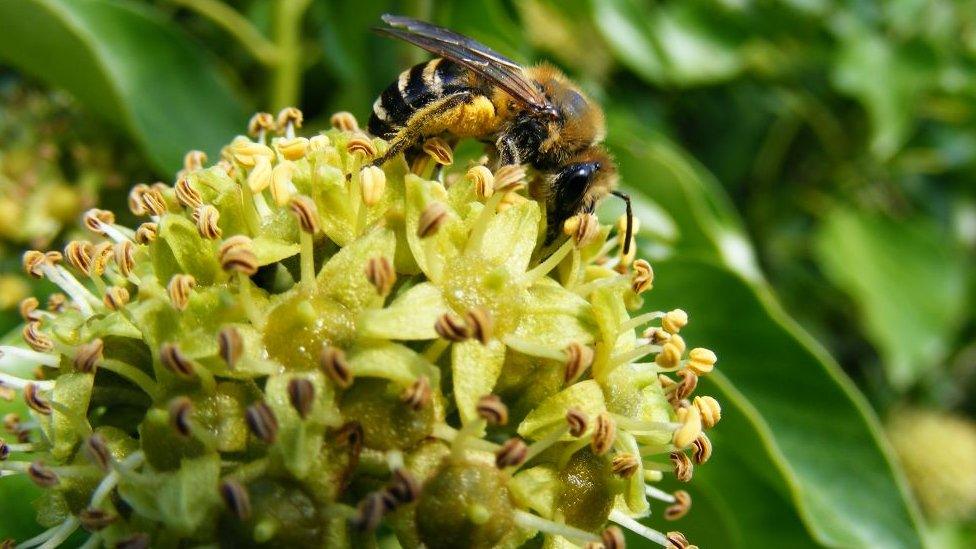
Ivy bees collect pollen from ivy plants, which flower in the autumn
Ivy bees nest underground and focus on collecting pollen from ivy, which flowers in the autumn.
Similar in appearance to the honey bee, the first reported sighting of ivy bees in the UK came in 2001 in Dorset.
Since then, the species has spread northwards but September's sighting at Newbold Quarry marks the first confirmed report in the town since 2014, Rugby Borough Council said.
Wildlife volunteers in the town found a number of closely-knit ivy been nests, known as an aggregation and housing thousands of the bees.
Tom Kittendorf, the council's chief officer for leisure and wellbeing, said it worked with Warwickshire Wildlife Trust to conserve and create natural habitats in the borough, building on work to support pollinator insect species through the creation of urban meadows and grasslands.
"However, the discoveries of a wasp spider and an aggregation of ivy bees were a real reward for the hard work of the volunteers from Rugby Wildlife, whose enthusiasm and dedication makes such a massive difference to our environment," he said.

Follow BBC West Midlands on Facebook, external, X, external and Instagram, external. Send your story ideas to: newsonline.westmidlands@bbc.co.uk, external
- Published4 June 2023
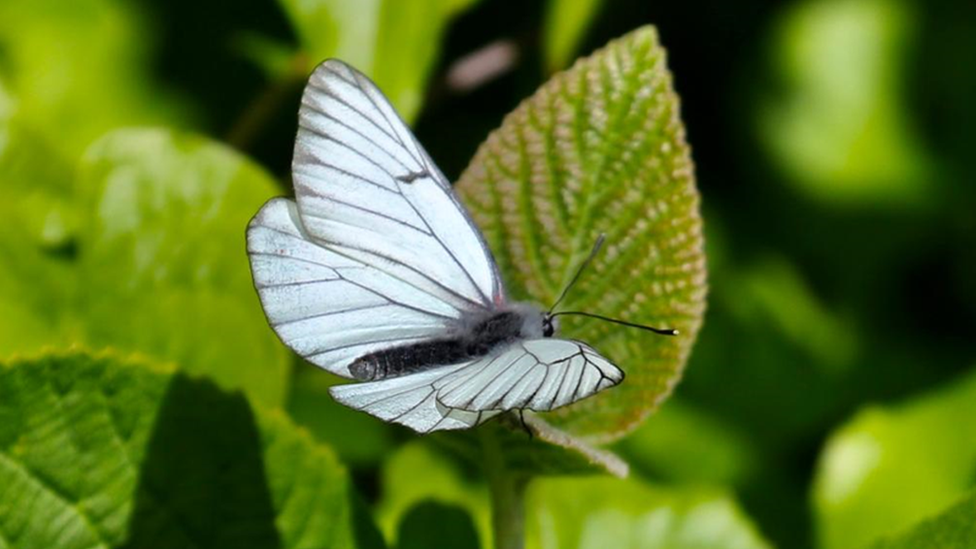
- Published5 March 2023
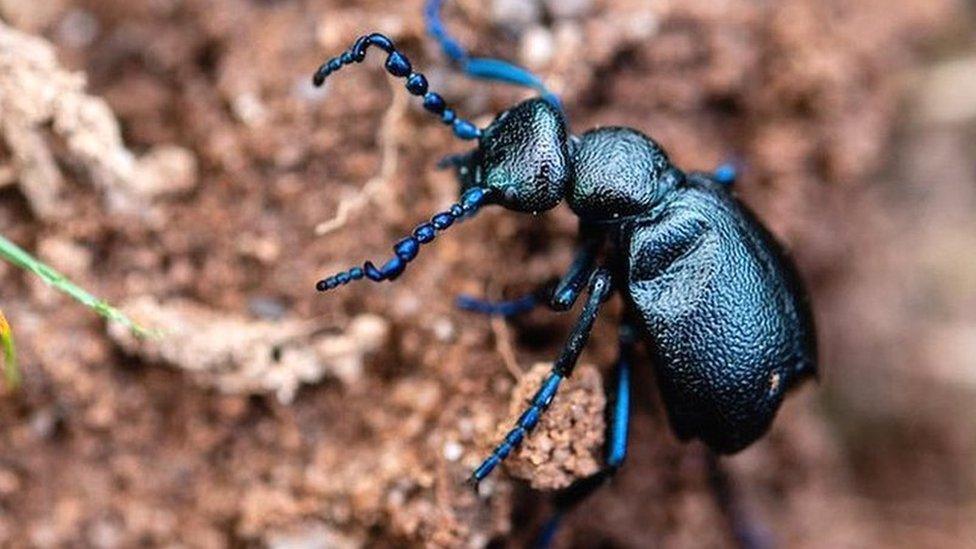
- Published10 March 2023
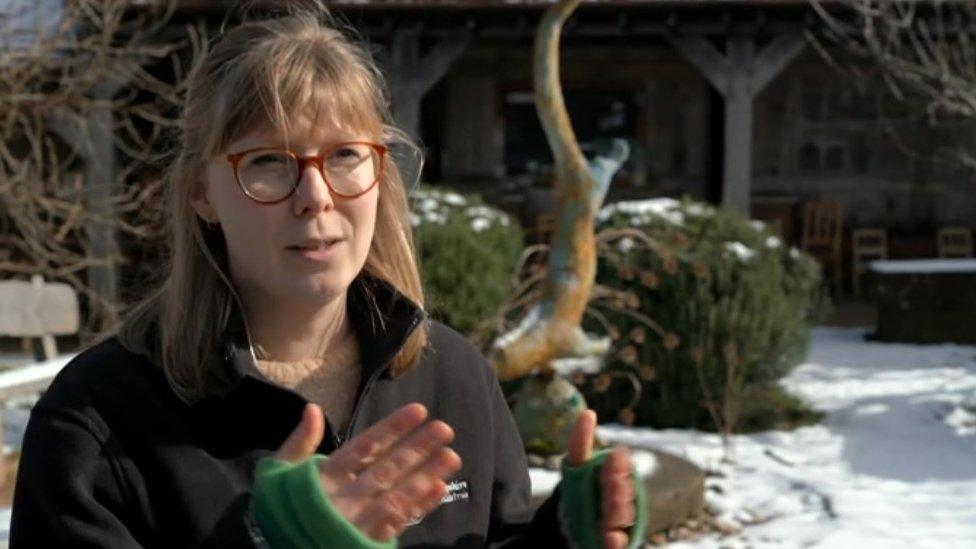
- Published29 January 2023
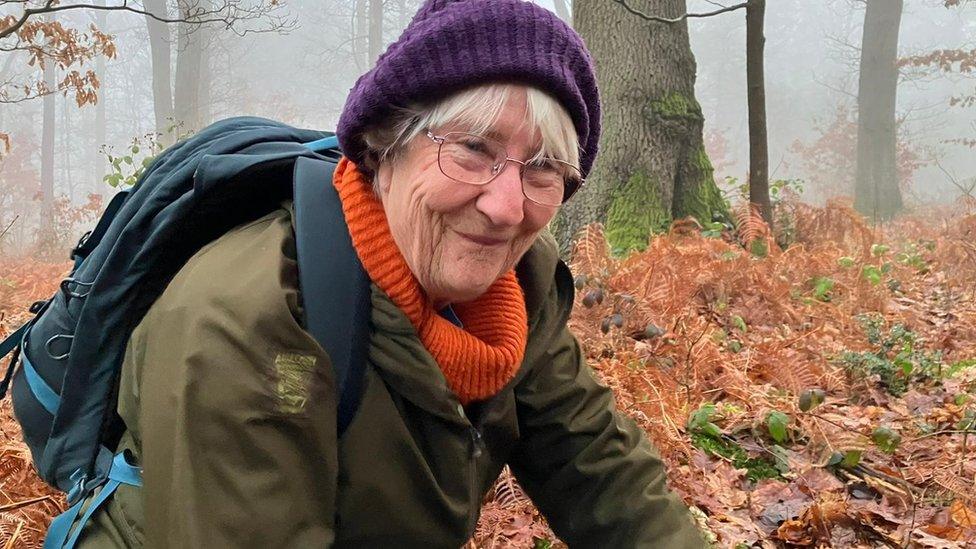
- Published8 November 2022
